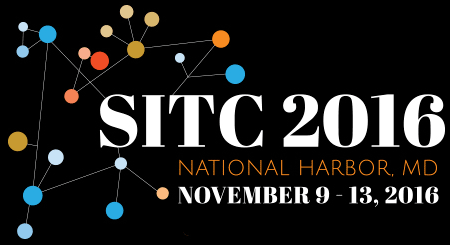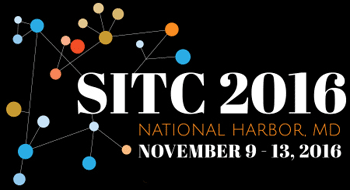Value of Cancer Immunotherapy Summit
Building on the success of last year’s Value of Cancer Immunotherapy Session, this half-day program, which was organized in collaboration with the American Society of Clinical Oncology (ASCO), had over 1500 registered participants. By uniting leading experts in cancer immunotherapy with key stakeholders in the healthcare system, this summit not only highlighted the unique aspects of immune-based agents, but also helped to define and prioritize the direction of future discussions on the value of cancer immunotherapy.
The first session of this groundbreaking summit focused on current value models, economic outcomes, and patient perspectives of value. In the first presentation, given by program organizer and past ASCO president, Peter P. Yu, MD, FACP, FASO (Hartford HealthCare Cancer Institute) current value models, including frameworks developed by ASCO, European Society for Clinical Oncology (ESMO), National Comprehensive Cancer Network (NCCN), Memorial Sloan Kettering Cancer Center (MSKCC), and Institute for Clinical and Economic Review (ICER), were discussed. Dr. Yu emphasized that although these frameworks have helped to advance discussion on healthcare costs, each had strengths and weaknesses due to differences in target audience and the metrics used to measure value. Former SITC President and fellow program organizer Michael Atkins, MD (Georgetown Lombardi Comprehensive Cancer Center) detailed the ways in which each framework failed to fully capture the unique aspects of cancer immunotherapy. In particular, none of these models measure the “tail end” of survival curves, which represent the durable responses that are characteristic of cancer immunotherapeutics. Louis Garrison, PhD, AB (University of Washington), provided insights on economic outcomes of cancer therapy, with a presentation on the progress of the International Society for Pharmacoeconomics and Outcome Research (ISPOR) initiative on value assessment frameworks in the United States.
Providing a more personal perspective, Steven Silverstein, MBA spoke about the importance of incorporating patient perspectives when defining and prioritizing metrics of value. As chairman of the board for the Melanoma Research Foundation and a stage IV melanoma survivor who experienced a complete response after receiving IL-2 therapy 13 years ago, Mr. Silverstein also emphasized the need to consider the value of cancer immunotherapy based on the societal benefits of long-term survival in patients with an initial diagnosis of advanced malignancy. Continuing the discussion on patient perspectives, Adam P. Dicker, MD, PhD (Thomas Jefferson University) and Heather S. Jim, PhD (H. Lee Moffitt Cancer Center & Research Institute) discussed the importance of including patient reported outcomes (PROs) in clinical trials and presented their work using a web-based application to collect these measures. Drs. Dicker and Jim illustrated how conventional adverse event (AE) tracking does not accurately represent symptoms experienced by patients, and demonstrated how data gathered using web-based PRO collection systems correlate with improved outcomes. These findings were particularly marked in underrepresented patient populations, suggesting a role for these technologies in addressing health disparities. Concluding the first half of this session, a panel discussion with audience participation further highlighted key issues for future discussion.
In the second half of the summit, presentations by William McGivney, PhD (McGivney Global Advisors) Jon Wigginton, MD (MacroGenics) and Roy S. Herbst, MD, PhD (Yale Cancer Center) focused on the perspectives of payors and industry, and the importance of predictive and companion biomarkers. Dr. McGivney explained concerns within these agencies over the rising cost of cancer therapeutics, especially the potential costs of combination approaches. He also provided information on how payor and managed care organizations determine policies that dictate the use of oncology therapies, and stressed the need for the development of models that incorporate measures of value to determine drug cost-effectiveness. Representing the industry perspective, Dr. Wigginton provided an overview of recent advances in cancer immunotherapy and ongoing efforts to develop new agents and combinatorial approaches. Dr. Wigginton emphasized the need to assess the full value of these agents, beyond cost alone, by quantifying the potential for durable responses. In the concluding presentation of this summit, Dr. Herbst focused on the importance and overall value of developing and optimizing biomarkers for cancer immunotherapy by illustrating the use of the PD-L1 assay in the first-line approval of pembrolizumab in advanced non-small cell lung cancer (NSCLC). The summit closed with an extended panel discussion with audience participation focused on identifying next steps in determining the value of cancer immunotherapy.
SITC is uniquely positioned to lead the discussion on defining the value of cancer immunotherapy by uniting key stakeholders, including representatives from academia, pharmaceutical and biotech industries, regulatory agencies, third-party payors, and patient advocacy groups. Based on the outcomes of this summit, SITC will continue this effort to optimize the value framework for cancer therapeutics to ensure that patients have access to high-quality care.





Important Dates
Regular Abstracts Published in JITC
November 8, 2016
Late-Breaking Abstracts Published in JITC
December 8, 2016
Thank You, Supporters!
Thank you, SITC 2016 supporters. Because of your generosity, SITC 2016 was a great success!
Interested in supporting other SITC programs? Confirm your support today!


Connect with SITC!